First overseas institution teaching national basic curriculum benefits students from different backgrounds
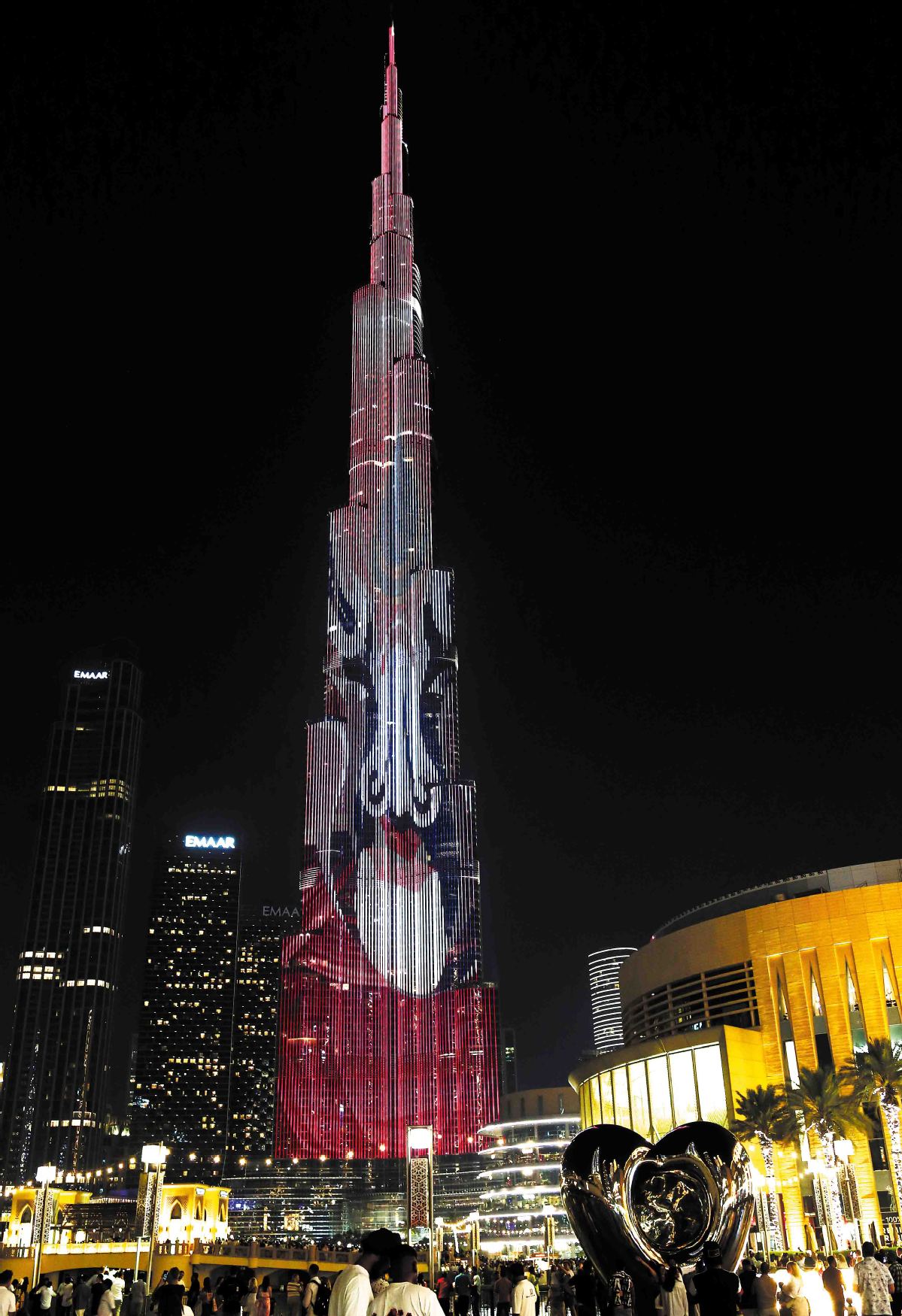
When 6-year-old Peng Gelin walked into the Chinese School Dubai for an admission interview, he could barely introduce himself in Mandarin or English. The Iran-born boy who only spoke Persian was visibly nervous.
His Chinese father and Iranian mother had relocated to the United Arab Emirates from Iran to restart their lives, and hoped to give their son an education rooted in China's rigorous, yet productive, school system.
The first interview did not go well. "He was too shy to speak," said school principal Zheng Li.
But after learning about the family's sacrifices, the admissions team offered the boy a second chance. This time, with patient guidance, Peng sang an Iranian children's song and said in broken Mandarin: "I like this school and want to study here."
After a year, the once-timid boy now converses fluently in Mandarin. "I like everything here — my classmates and teachers, they're all good to me," he said, his eyes shining.
Gelin's transformation didn't come easily. He initially struggled with Mandarin tones and could only pronounce the fourth one correctly.
"He would ask classmates their names when I distributed notebooks, which helped him integrate quickly," said Wang Yiwen, class supervisor. "He always asks me, 'Ms Wang, did I get a hundred points?'" she said, adding that Gelin scored 99.5 points in his last exam.
The boy's father, Peng Tinghui, said the change in his son had been profound.
"He surprised everyone. In Iran, he didn't have the environment. Even at home, he resisted talking with me in Chinese so we had to speak Persian," said the Hubei province native who moved to Iran in 2016 to run an aquatic products business before marrying an Iranian woman.
"If not for this school, we could never have come to Dubai. The school changed his personality and his destiny.
"Here, he is encouraged to grow into a bridge between two cultures," Peng said.
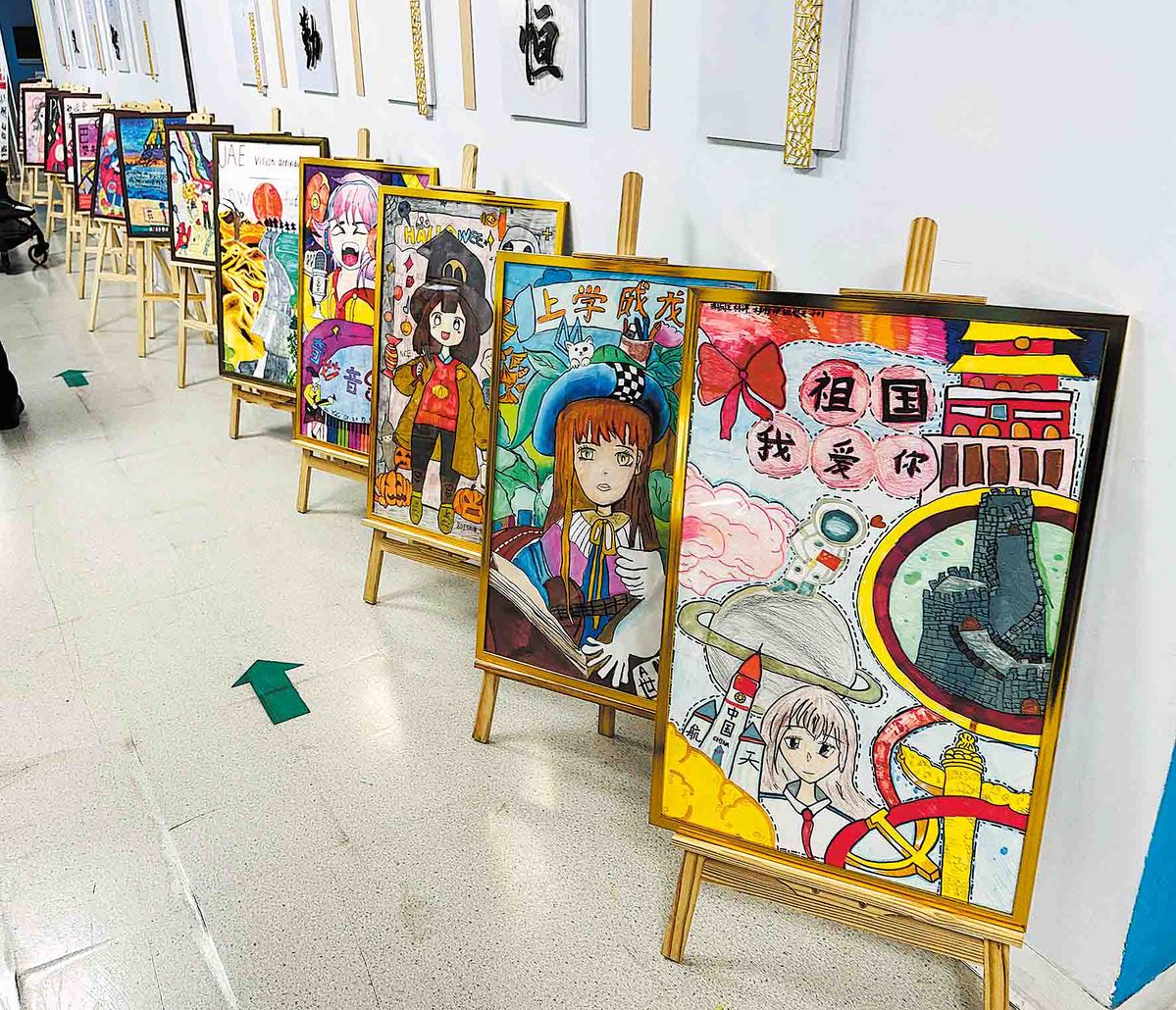
Special curriculum
Dubai is home to the largest Chinese community in the Middle East, with a population of over 300,000 Chinese.
For years, families had to choose between local international schools or sending their children back to China for their education. The opening of the nonprofit Chinese school in 2020 ended the dilemma.
It is the first overseas school following China's national basic curriculum.
Overseen by the Chinese Ministry of Education and operated by Hangzhou No 2 High School, one of Zhejiang province's top educational institutions, it combines the strengths of Chinese pedagogy with a global outlook.
The curriculum blends core Chinese subjects with Arabic, sociology and ethics. The small classes are capped at 24 students, which enables personalized attention for its 500 pupils attending kindergarten through to grade nine.
"Chinese education offers discipline and depth, while Dubai fosters openness. We combine both," said Zheng, the principal.
Inside the school's maroon and cream-colored buildings, the lobbies and classrooms are decorated with Chinese and Arabian handicrafts made by students. They include calligraphy scrolls, paintings and poems written in both languages.
"Over the past five years, we have adhered to the belief that establishing this school is a project aimed at cultivating more overseas talents who can preserve and pass on Chinese culture," said Zheng. "Our goal is to cultivate students rooted in Dubai with a global vision," she added.
"We have striven to integrate traditional Chinese culture into teaching, which not only enhances students' competencies and international competitiveness, but also plants the seeds of a deep appreciation of Chinese culture in their hearts," she said.
ALSO READ: Xi, UAE president exchange greetings on 40 years of diplomatic ties
In 2023, Dubai's Knowledge and Human Development Authority awarded the school a "good" rating — the highest for any new Dubai school in its inaugural assessment. "It showcases Chinese education's strengths while enriching Dubai's educational diversity," said KHDA's director general Aisha Abdulla Miran.
Hu Yiyao, 37, enrolled her 9-year-old daughter at the school last year. She said her child seems more confident and happy after leaving an international school.
"My daughter now understands her roots — her hair, her skin and her family story," she said, adding that she plans to send her son to the Chinese School Dubai this September.
The school's academic achievements are also impressive. At the recent 2025 Purple Comet Math Meet, a team from the school won first place in the UAE and ranked 38th among 1,047 teams participating worldwide.
Team member Bao Hafu, 15, will graduate from grade nine soon and plans to enroll in a United States-curriculum high school in Dubai.
The Dubai-born boy used to study at an international school. "The teachers in international schools say, 'you are great', 'everything is great'. This school encourages you, but tells you where you need to improve and that is much more helpful," the teenager said.
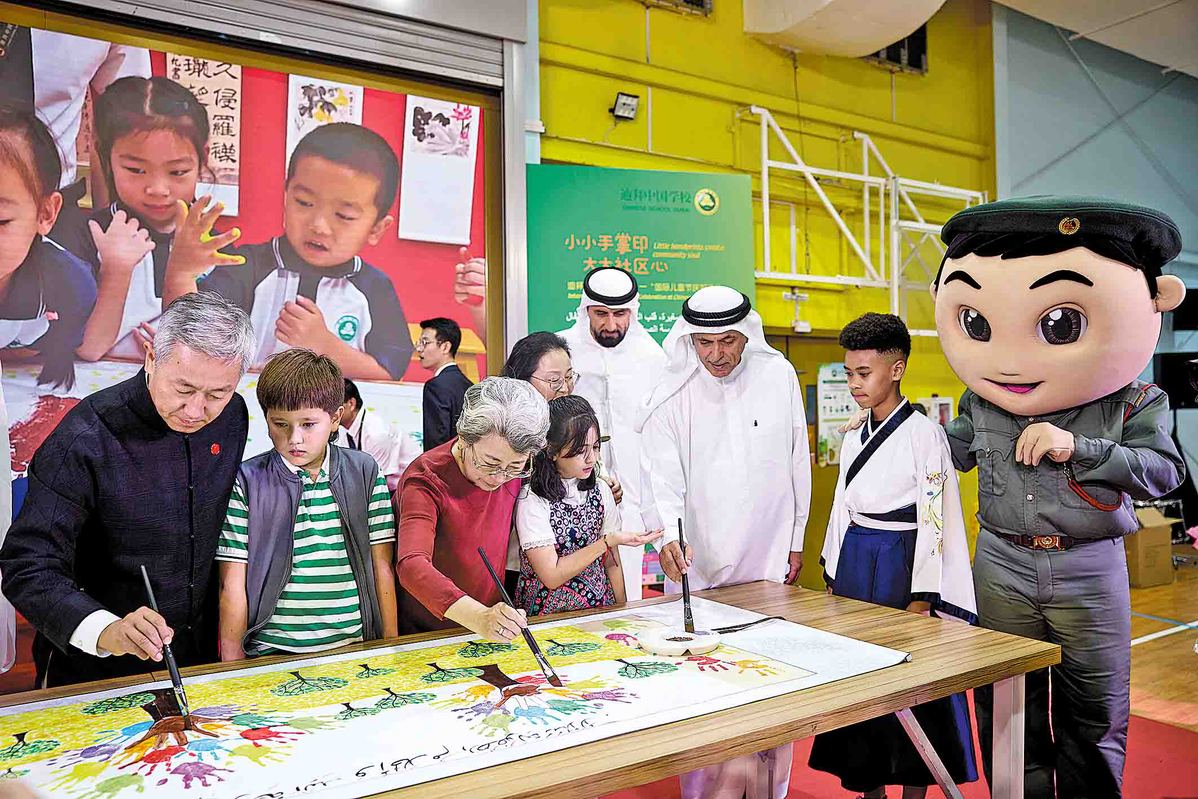
New experience
The school also offers new experiences for teachers who have moved from Hangzhou to Dubai to take up teaching posts.
Over the past five years, the school has received four batches of a total of 123 teachers from Hangzhou.
"We keep sending outstanding teachers to Dubai to ensure the educational quality of the Chinese school," said Niu Jun, director of the Hangzhou Municipal Education Bureau.
The Mandarin textbooks follow those used in China. However, differences in students' Chinese proficiency are the biggest obstacle for teachers to overcome.
Different teaching strategies have been developed to deal with the challenges, including lesson logs to track each student's progress. According to Zhu Qiongying, director of academic affairs office, these logs are usually three pages, but the logs they produce are often over 10 pages.
When teaching Chinese culture, teachers adapt traditional lessons to a local context, said Zou Xiaozhen, primary school division head.
"When teaching about Spring Festival, I incorporate Eid al-Fitr (the holiday marking the end of Ramadan) to guide students in comparing the shared values between cultures, such as family reunions. It deepens mutual understanding while nurturing global perspectives," she said.
READ MORE: Trip boosts China-UAE business links
Before Chinese New Year, students from Dubai and Hangzhou Phoenix Primary School exchanged greeting cards. They painted the iconic elements of the two cities, the Six Harmonies Pagoda and the Burj Khalifa, on the cards deepening their friendship.
Wang Yiwen has been teaching for nearly 32 years and was sent to Dubai last year. She rewards students who perform well with gift incentives such as stickers, small toys or snacks. Some of these gifts are brought from Hangzhou while others are handed over by relatives or friends when they visit Wang in Dubai.
Recently a former student came to see her and brought some dingshenggao rice cakes, traditionally believed to have been given to soldiers during the Southern Song Dynasty (1127-1279) before they entered battle. The cakes feature the word "dingsheng", meaning "must win".
"When I distributed the pastries to the students one by one, I told them stories about Yue Fei (an ancient Chinese military general) and the origin of the dingshenggao," Wang said. "Small rewards greatly inspire children to experience the happiness of learning."
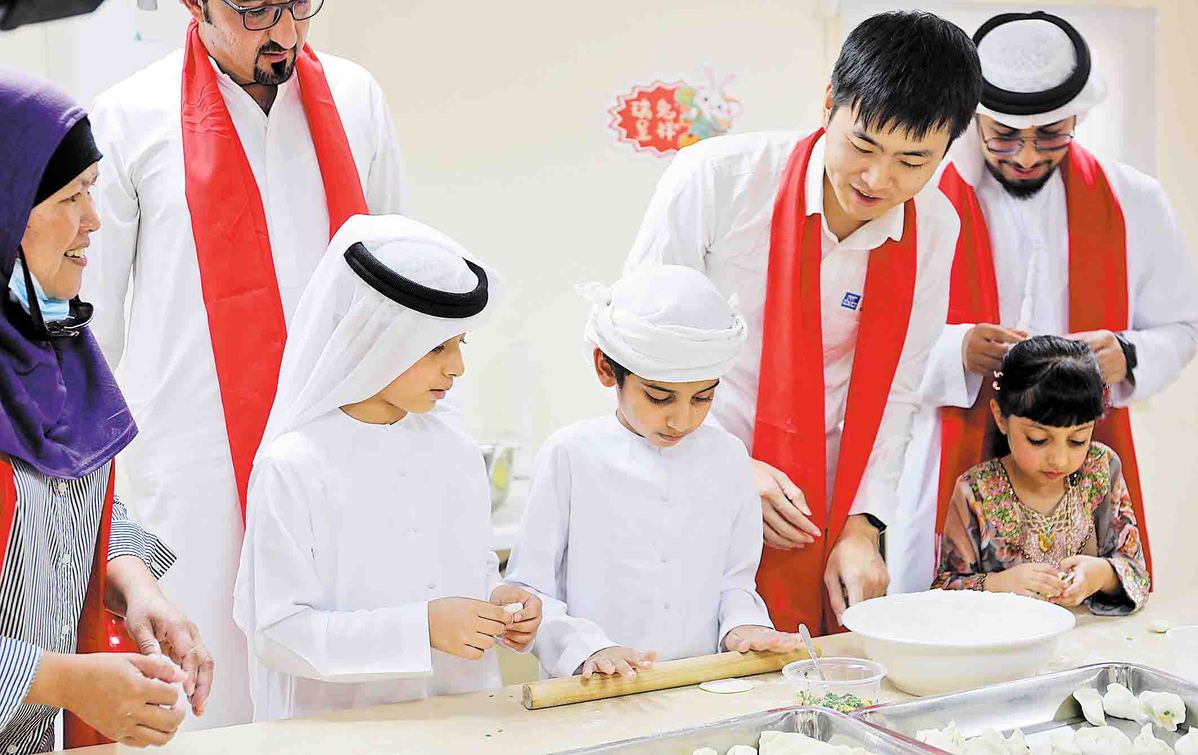
Global ambitions
The school's influence extends beyond its walls.
Since 2019, the UAE's "Hundred Schools Project" has expanded Chinese language education to 171 schools and 71,000 students.
"The Chinese School Dubai is not merely a school. It's also a bridge for cultural exchanges and a symbol of friendship," said Abdulla Al Saleh, undersecretary of the UAE Ministry of Economy.
Saturday Mandarin classes at the Chinese School Dubai this semester have attracted over 200 participants from nearly 20 countries.
Among them is 13-year-old Emiliya Miroshnichenko.
The Dubai-born girl was enrolled in the school for grade seven after taking several Saturday lessons, which helped her discover the depth of Chinese education. "At my old school, they used calculators for simple calculations. Here, they push critical thinking," she said.
Her mother, Nadezhda Prossalova, sees a major shift in thinking about education. "British education was once our only option here. China opened a door we never imagined," she said.
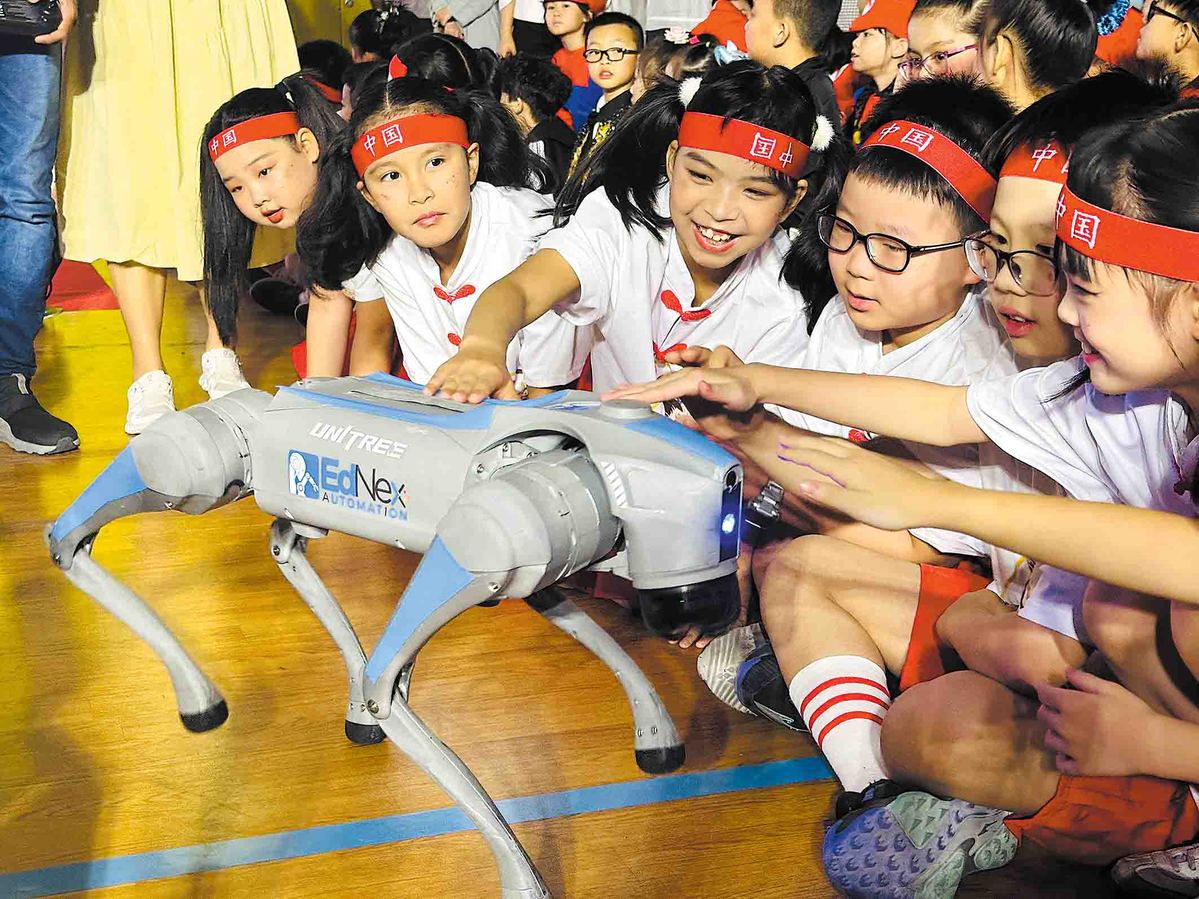
Emiliya learns Mandarin three or four times a week with the help of home tutors, but she said this is not enough.
She wants to attend a boarding in China for high school and study diplomacy at a top Chinese university. "Mandarin isn't just a languageit's my gateway to global citizenship," said the teenager.
Her fascination with China was sparked by a two-hour documentary showcasing the country's impressive infrastructure and culture.
"I loved this so much," she said. "The presenter traveled to many Chinese cities. I was astonished by the people, the environment, the infrastructure and the governments. I thought I need to go there, and see it with my own eyes."


